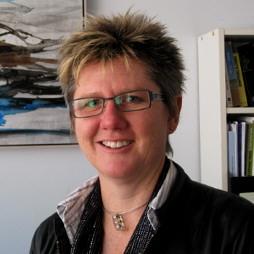Posted 7 February 2012

Dr Wendy Timms
CWI core team member Dr Wendy Timms has been appointed a Senior Lecturer in the UNSW School of Mining Engineering. She will teach topics such as geology and water in mining, and will continue to lead research on low permeability barriers as part of the National Centre for Groundwater Research and Training (NCGRT). She is an expert on the hydrology and geochemistry of barriers known as aquitards and is a co-convenor of a specialist session at the International Association of Hydrogeologists 2012 Congress.
Dr Timms has more than 16 years of professional experience in consulting, government and research and has worked in Canada and Australia on water and waste issues in both mining and agriculture. She holds a B.Sc HonsI (Newcastle) in geology, hydrology and chemistry and a PhD (UNSW, 2001) in Environmental Engineering.
She is currently working on recharge, seepage and water quality issues at sites in the Gunnedah area, Sydney Basin, Queensland and Saskatchewan, Canada. She has also trained in geochemical and flow modelling at the Colorado School of Mines, applying that knowledge to help protect aquifers that are essential for water supply.
The UNSW School of Mining Engineering is a leading Australian provider of training for mining engineers. It is a national joint venture member of Mining Education Australia, delivering world class undergraduate education. The Australian Centre for Sustainable Mining Practices, located in the UNSW School of Mining Engineering is a provider of training and research focussed on new mining practices and sustainability. Wendy brings a new focus to Mining Engineering education on water, dewatering, waste management, and to leading practices for water and environmental issues. Wendy and Dr David Laurence recently commenced meeting with stakeholders and researchers to discuss key questions on water in mining and coal seam gas (CSG).
The NCGRT aquitard research team led by Wendy and Professor Ian Acworth, includes Dr Adam Hartland who specialises in tracing of seepage with a suite of inorganic, organic and isotopic signatures, and Dr Anna Greve who is working on innovative geophysical techniques. Mark Whelan, centrifuge engineer, is responsible for the new NCGRT centrifuge facility, located at Water Research Laboratory, Manly Vale campus. Aquitard research is part of a suite of groundwater related research by UNSW Connected Waters Initiative, combining expertise across the Faculties of Engineering and Science. Wendy's appointment to the School of Mining Engineering will boost research collaboration within and beyond UNSW.
Contact Wendy Timms for information on PhD scholarships or the NCGRT centrifuge permeameter.
Links

Professor Andy Baker features in American Water Resources Association ‘Water Resources Impact’, September 2020 edition.

The Connected Waters Initiative (CWI) is pleased to welcome Taylor Coyne to its network as a postgraduate researcher. If you’re engaged in research at a postgraduate level, and you’re interested in joining the CWI network, get in touch! The CWI network includes multidisciplinary researchers across the Schools of Engineering, Sciences, Humanities and Languages and Law.

The Grand Challenge on Rapid Urbanisation will establish Think Deep Australia, led by Dr Marilu Melo Zurita, to explore how we can use our urban underground spaces for community benefit.

On the 21 August 2020, CWI researchers made a submission to the National Water Reform Inquiry, identifying priority areas and making a number of recommendations as to how to achieve a sustainable groundwater future for Australia.

Results published from a research project between the Land Development Department (LDD) Thailand and UNSW has demonstrated how 2-dimensional mapping can be used to understand soil salinity adjacent to a earthen canal in north east Thailand (Khongnawang et al. 2020).